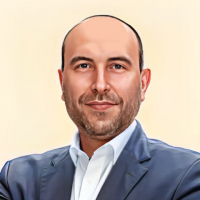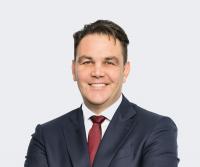Fund passports were built on the same vision that shaped the Schengen Zone: shared trust and borderless movement. Luxembourg remains at the center of that idea.
If you stand in the village of Schengen, where Luxembourg meets France and Germany, it is hard to imagine a more symbolic place for Europe’s transformation. It was here, on the banks of the Moselle, that the Schengen Agreement was signed and Europe committed itself to a new principle: once border checks are trusted at the entry point, movement becomes possible everywhere else.
The AIFMD passport follows the same logic. Once a fund is authorized in one European jurisdiction, it can be sold across the continent without rebuilding its identity in each country. A single point of supervision, shared across many borders. It is the financial equivalent of what Schengen achieved for people.
Borderless system
Luxembourg sits naturally at the center of this model. It hosts both the birthplace of Europe’s borderless system and the world’s most successful cross-border fund ecosystem. Managers choose Luxembourg because they understand that a passport is more than a regulatory shortcut. It is a framework built on trust, predictability, and shared standards.
The challenge today lies outside Europe. A European passport is powerful within the single market, but it does not automatically open doors in Dubai, Singapore, São Paulo, or Hong Kong. Each region still has its own distribution regime, filing requirements, tax considerations, and cultural expectations. Cross-border fund sales remain global, but regulation remains local.
“The Schengen metaphor matters because it reminds us that borderlessness is built on shared trust, not on the absence of rules. ”
This is where Luxembourg’s ecosystem becomes essential. Service providers here have developed a rare expertise in navigating these patchworks. They understand the nuances of private placement, the differences between registration and notification, and the structural adjustments needed to make a strategy marketable in multiple continents. In a world of fragmented rules, this competence becomes a competitive advantage.
The Schengen metaphor matters because it reminds us that borderlessness is built on shared trust, not on the absence of rules. Investors trust Luxembourg funds because they trust the governance behind them. They trust the supervision, the systems, and the people who stand behind the work. The stronger that trust becomes, the easier cross-border distribution becomes.
“The Schengen Agreement was not quiet. It was a major European commitment that reshaped how people move across the continent.”
The Schengen Agreement was not quiet. It was a major European commitment that reshaped how people move across the continent. It showed what can happen when jurisdictions align around common standards and a shared vision.
Cross-border fund distribution is searching for its own version of that vision. The next step will require harmonized reporting standards, digital fund identities, and easier recognition of due diligence across regions. Europe demonstrated that borderless movement is possible when trust is shared. The global fund industry has not yet reached that stage.
If Luxembourg can help export this philosophy, global distribution may one day feel far more seamless than it does today.
Christophe Santer is a columnist for Investment Officer Luxembourg. A Luxembourg native, Santer has nearly two decades of experience in fund administration, investor services, and private markets. He also works as director of business development manager at bunch.












